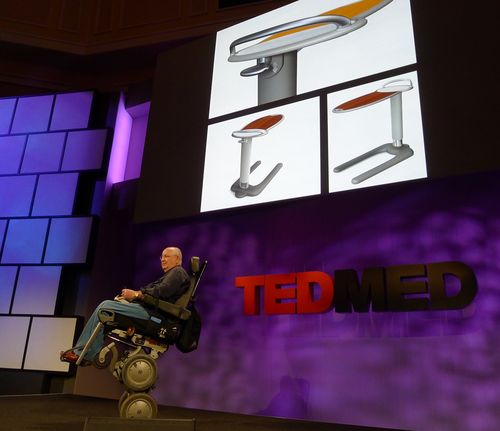Technologies are, by nature, biased. They are biased by the humans who create them. They are biased by the cultures in which they are produced. They are biased by the perceived needs of intended consumers and they are biased by agentic practices of consumption. A recent TEDMED talk (Why Hospital Rooms Don’t Work) by architect Michael Graves highlights the biased nature of technologies. Specifically, he demonstrates the embeddedness of privilege.
Michael Graves is a renowned architect. In 2003, Graves developed a rare (and still mysterious) illness that left him paralyzed. While fighting the illness and then undergoing rehabilitation, Graves spent a significant amount of time in hospitals. He found the facilities not only to be aesthetically displeasing, but impractical and sometimes downright inaccessible for a person with mobility impairments. He describes unreachable light switches and faucet handles, rooms so small that maneuverability is impossible, really ugly floral patterns, and an overall requirement that he, as a person in a wheelchair, ask for help with tasks that he should be able to complete independently. Summarizing these shortcomings he says: more...

